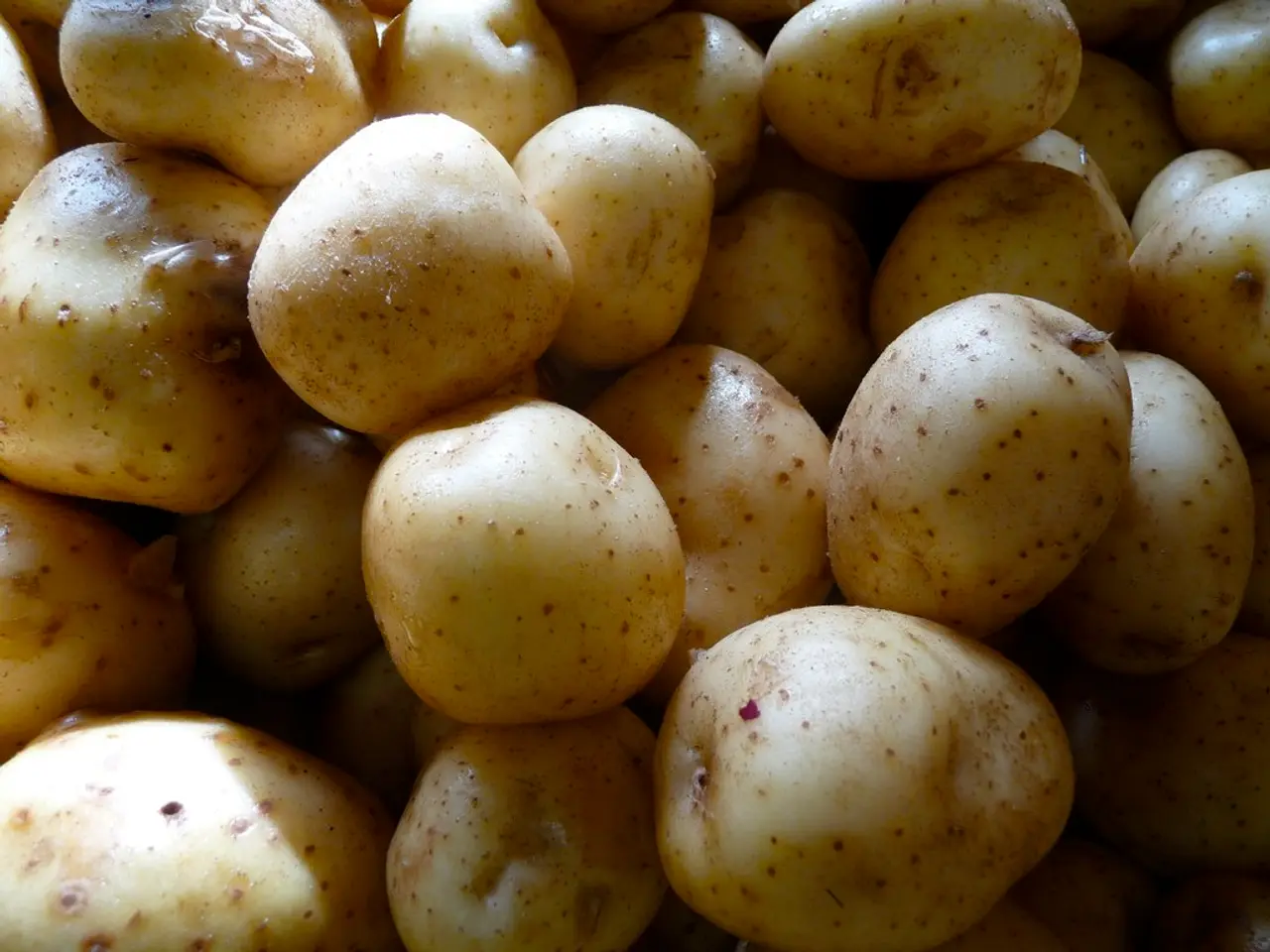Kitchen Potatoes: A Potential Hazard in the Kitchen or a Tasty Salvation?
Sprouted Potatoes: A Cautionary Tale
When it comes to potatoes, a few sprouts might not seem like a big deal. But, these seemingly harmless sprouts can hide a dangerous secret – toxic compounds called glycoalkaloids.
These compounds, primarily solanine and chaconine, are found in higher concentrations in the sprouts and green areas of potatoes. Consuming large quantities of these toxins can lead to digestive problems such as nausea, vomiting, and diarrhea [1][4].
So, how can you identify a potentially harmful potato? Look out for potatoes that are soft, shriveled, have a strong off smell, or have extensive green discoloration. These potatoes should be discarded for safety reasons [1].
But what if a potato is still firm, despite sprouting? Can it be saved? In some cases, yes. If the sprouts are small and the potato is firm, it can be safe to eat. However, it's important to remove the sprouts and any green or soft parts before cooking to reduce glycoalkaloid intake [1].
To prevent sprouting in the first place, store your potatoes in a cool, dry, dark place with good ventilation, such as a paper bag or basket. Keep them separate from ethylene-producing fruits like bananas and apples, which accelerate sprouting [1].
In summary, sprouted potatoes are not inherently unsafe if properly prepared, but consuming the sprouts or green parts can expose you to harmful toxins. Careful removal of sprouts and damaged areas makes the potato safe for cooking and eating [1][4].
Remember, when it comes to food safety, better safe than sorry. If a potato is sprouting, wrinkling, or moldy, it cannot be revived and should be discarded.
Bonnie Ferrero, a keen hiker, cook, gardener, and home decorator, shares this advice to ensure everyone enjoys their meals safely and healthily.
[1] Potato Council. (2021). Sprouting Potatoes: What You Need to Know. Retrieved from https://www.potatoes.co.uk/potato-news/sprouting-potatoes-what-you-need-to-know/ [4] Food Standards Agency. (2018). Potatoes. Retrieved from https://www.food.gov.uk/guidance/bacteria/potatoes
- Bonnie Ferrero, a passionate gardener, recommends storing potatoes in a cool, dry, dark place to prevent sprouting and reduce the risk of exposure to harmful toxins.
- When preparing meals, practitioners of health-and-wellness should always ensure that sprouts and green parts of potatoes are removed before cooking to maintain food safety.
- In the realm of lifestyle and food-and-drink, it's important to be aware that potentially harmful compounds are found in the sprouts and green areas of potatoes.
- A cautious approach to composting might be necessary, considering that sprouted potatoes, if not properly prepared, can contain toxic compounds that could pose a risk to the health of the soil or garden.




